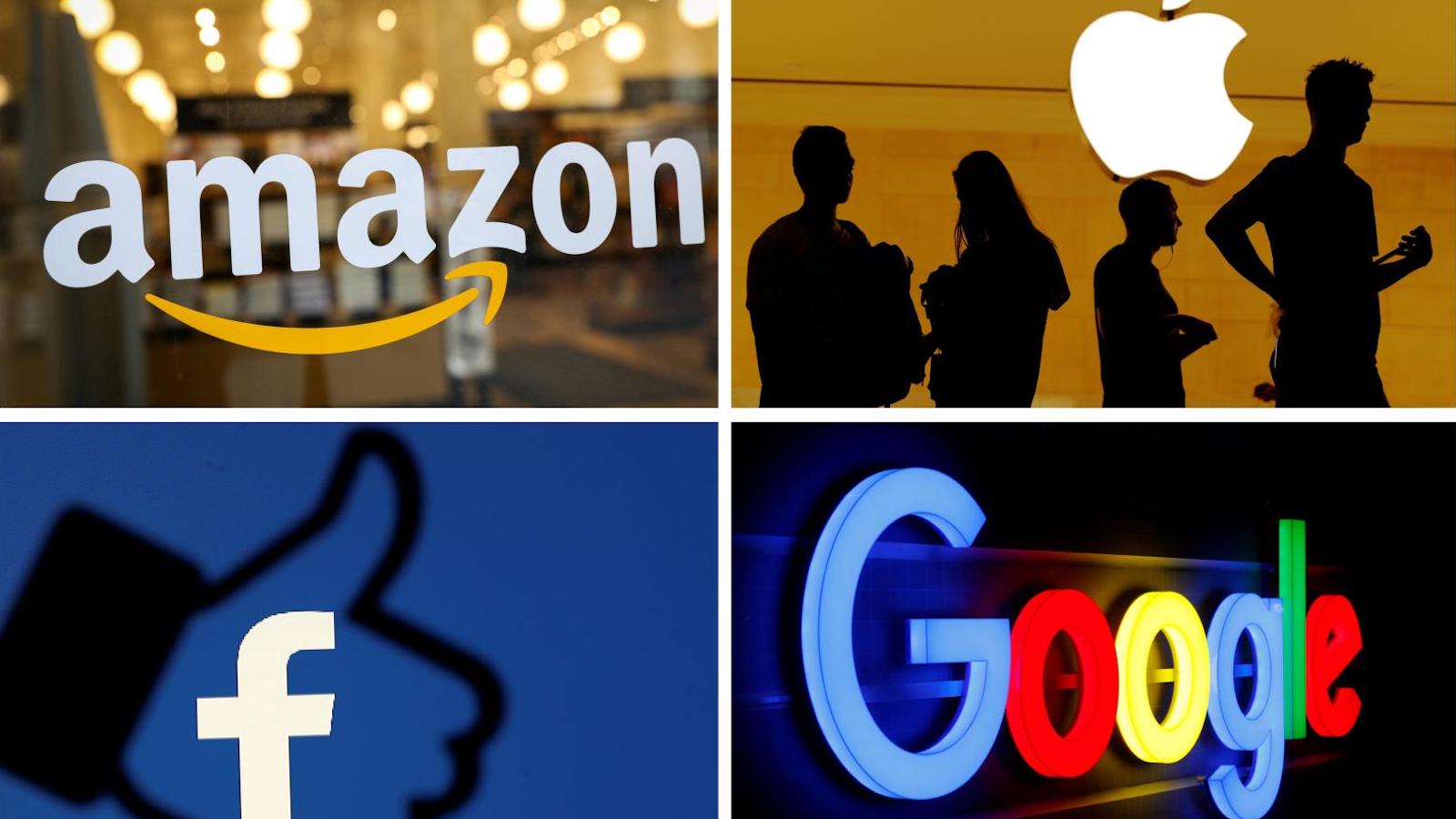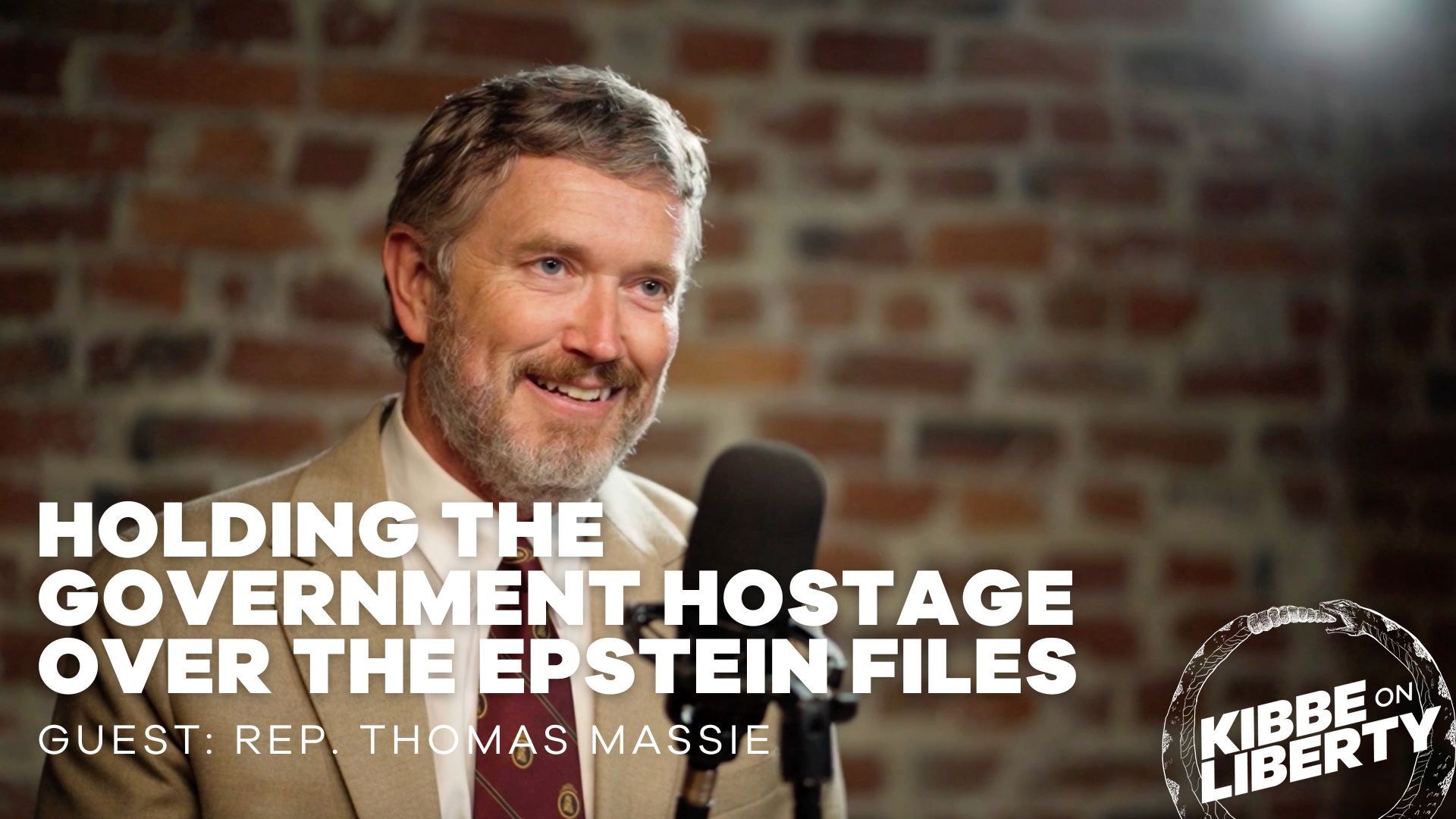
Big Government Can’t Save You from Big Business
One of the biggest misconceptions plaguing America is the notion that big government and big business are enemies, each trying to hold the other in check to prevent it from becoming too powerful. Traditionally, the political right fears big government, and thus supports big business, while the left fears big business and demands that it be kept in check through laws and regulations. I’ve spend years devoted to the largely futile task of explaining to progressives that huge corporations aren’t restricted by government, but assisted by it. Indeed, the kinds of mega oligopolies people worry about are hardly even possible—at least not for any long real duration—without the ability to lobby government to protect incumbents and stifle competition.
Far from convincing anyone on the left of this, I find to my dismay that I now have to turn my attention to the right as well, many of whom have succumbed to the apparently contagious delusion that only the state can protect them from Silicon Valley.
As tech companies clamp down on the speech of users, and sabotage competing platforms like Parler by denying them access to major infrastructure, conservatives and libertarians—who represent the decidedly unpopular viewpoints which are the targets of such actions—are understandably dismayed. They don’t like the way things are headed, and they want to do something about it. So far, I’m with them.
But here my agreement must be tempered with a fairly major qualification. Doing something, as suggested above, must emphatically not involve the government imposing legal or regulatory restrictions on tech companies. As bad as things seem now, that outcome would be an unmitigated disaster for the internet and for human freedom in general.
People are flawed, and one of the manifestations of these flaws is impatience. We rarely have the stomach for the kind of long slog necessary to achieve lasting and meaningful change. We want action now, we want a silver bullet, and we get upset when anyone tries to tell us that no such easy solution exists. But that’s exactly what I’m here to tell you.
If you think the government can fix this problem—and it is a problem—for you, think again.
The reason for this is simple. The government cannot protect the rights of those with unpopular opinions, because those with unpopular opinions don’t run the government, by definition. Democracy means that majority rules, and even in a representative republic like the United States, try running for office openly displaying a set of oddball views and see how far you get. Politicians want one thing above all else, and that’s to get reelected, and as we just saw a few months ago, you don’t get reelected by championing the freedoms of conservatives and libertarians.
With this held firmly in mind, let’s look at a couple of the so-called solutions that keep being bandied around by people who ought to know better.
Section 230
Perhaps the most popular idea of how to restrain tech giants is to change the way that they are classified under Section 230 of the Communications Decency Act. Currently, Facebook and Twitter are classified as platforms for speech, and as such are not legally liable for the things users post there. The owners of these companies assume no responsibility for what their users do, they are just providing a forum for people to talk. Publishers, on the other hand, including sites that actively select which content to publish and which to reject, are held to a much more rigorous standard. The argument goes that if Facebook is going to censor its users’ speech, it should be treated as a publisher rather than a platform, with all the legal ramifications of that.
Why anyone thinks this is a good idea is a mystery to me. If you tell Zuckerberg that he’s going to be hauled into court based on what gets posted on Facebook, do you really think his response to that will be to engage in less censorship? I guess the theory is that it’s meant to be an empty threat, that Zuck will lighten up with the moderation in order to avoid reclassification, but that’s a pretty dangerous gamble to take. Far more likely is that moderation will become far more stringent in order to accommodate the new classification. It must be remembered, after all, that Zuckerberg actually asked Congress to regulate him more, knowing that such rules would hurt him less than his competitors.
Antitrust
Antitrust laws frequently get brought up in the context of breaking up big tech “monopolies.” First of all, let’s get one thing straight. None of these companies are monopolies, so please stop calling them that. A monopoly exists when only one company is providing a product or service with zero competition. Google, while large and many tentacle, is not a monopoly. There exist other email clients, other search engines, other browsers, other versions of everything Google does. They may not be popular, but they are out there. Amazon is not a monopoly. There are lots of other places to shop online. Amazon is just the biggest, fastest, and most convenient, but competition does exist. Are we clear on that? Good.
Now, what about using antitrust laws to break up these large companies into smaller ones? This is one of those things that always sounds good in theory, but typically creates more problems than it solves in practice. One of the most famous cases of antitrust law was the complaint against Microsoft by the now defunct Netscape. Microsoft was accused of levering its market power in PCs to force Internet Explorer onto people by giving away the browser free with its operating system. Netscape claimed this was unfair, because nobody wanted to buy their $50 browser when they already had a free one that (mostly) worked tolerably well.
The case was settled out of court, but had Netscape gotten its way, consumers would have been deprived of a free product and forced to pay for an alternative—not exactly a great result for home computer users at a time when the technology was already pretty expensive. Another result of the case was that the comparatively young Microsoft rescinded its vow not to use lobbyists, and hired a small army of them to prevent ever having to go through such a costly battle again.
The point here is that antitrust laws are less a way to ensure fairness, competition, and consumer welfare, and more a way for companies to harass their competitors using the law. Not to mention the fact that the people best able to write, understand, and manipulate the laws to their advantage will be the very companies these laws are alleged to keep in check. It’s pretty hard to imagine Parler, for example, coming out on top when faced with the untold legions of Google and Facebook attorneys who helped write many of these laws in the first place.
Which brings me to my next and final point:
Digital Bill of Rights
The idea of a Digital Bill of Rights has been kicking around for a long time, and again, it’s one that sounds good in theory. An ironclad document protecting the freedoms of individuals online would be great, that is, if such a thing were possible. I’m just not convinced that it is.
Firstly, we already have a Bill of Rights that is supposed to guarantee our freedom from an oppressive government. How’s that working out for you? The Constitution is routinely ignored, not only by the politicians who write the laws, but by the courts whose only job is to enforce them. Even Supreme Court Justices who call themselves originalists will take a dive on Fourth Amendment privacy issues, Second Amendment gun rights, Fifth Amendment due process rights, not to mention the much abused Commerce Clause. How are we supposed to trust these people to enforce a Digital Bill of Rights with any more rigor?
To this you may answer, “well, it may not be perfect, but it couldn’t do any harm.” Oh boy, how wrong you are. Let me remind you of some of the people who currently control the government: Joe Biden, Kamala Harris, Nancy Pelosi, Chuck Schumer, and then you’ve also got AOC and the Squad to think about. There is precisely zero chance that a Digital Bill of Rights written and passed by these politicians will be good news for conservatives and libertarians. As we saw with Net Neutrality, they will instead take the idea of “a free and open internet” and twist it to mean “we make the rules, you do as we say.” I can hardly think of a more frightening prospect for online freedom than a Digital Bill of Rights helmed by the very people who hate us and everything we stand for.
So What, Then?
I told you you weren’t going to like the answer. There’s no silver bullet. You can’t use government to control big tech because at the end of the day, government and big tech are allies, and you’re not the customer, you’re the product.
But take heart, all is not lost. Fortunately, all companies, even the largest ones, can only exist when people voluntarily buy their products and use their services. Remember Google Glass? You probably don’t, because Google, for all its power, was unable to force their monstrous surveillance machine onto an unwilling public. If we don’t put up with online censorship, there’s really nothing they can do.
Right now, we are in the minority, and so it feels like we have no recourse. In a sense, that’s true, but it’s only true so long as we remain in the minority. The solution, unpalatable though it may be, lies in a long, slow campaign of education and persuasion. We don’t have to convince everyone to become a libertarian, but we do have to show them that free speech is a value that deserves to be defended, both in public and private, if we want to have a prosperous and just society. We’ve lost ground on this, no doubt. The ACLU and other former bastions of left-leaning liberals (in the classical sense) have fallen to the pressures of political correctness. But the very fact that champions of free speech from across the political spectrum once existed means that they can exist again. They’ve lost their way, and we need to help them find it.
The price of liberty is eternal vigilance, and it’s hard work. But rest assured, the quick and easy path, alluring though it may be, leads only to the dark side. As with so many things in life, the easy answer turns out to be no answer at all.
Free the People publishes opinion-based articles from contributing writers. The opinions and ideas expressed do not always reflect the opinions and ideas that Free the People endorses. We believe in free speech, and in providing a platform for open dialogue. Feel free to leave a comment.




Carl D.Thompson
LOGAN ALBRIGHT….BRILLIANT…SELDOM DO I FIND AN AUTHOR WORTHY OF MY TIME AND INTEREST.READING YOU IS A PLEASURE !………….THANK YOU FOR A BIT OF REFRESHING ENLIGHTENMENT.
Deke
Great explanation!